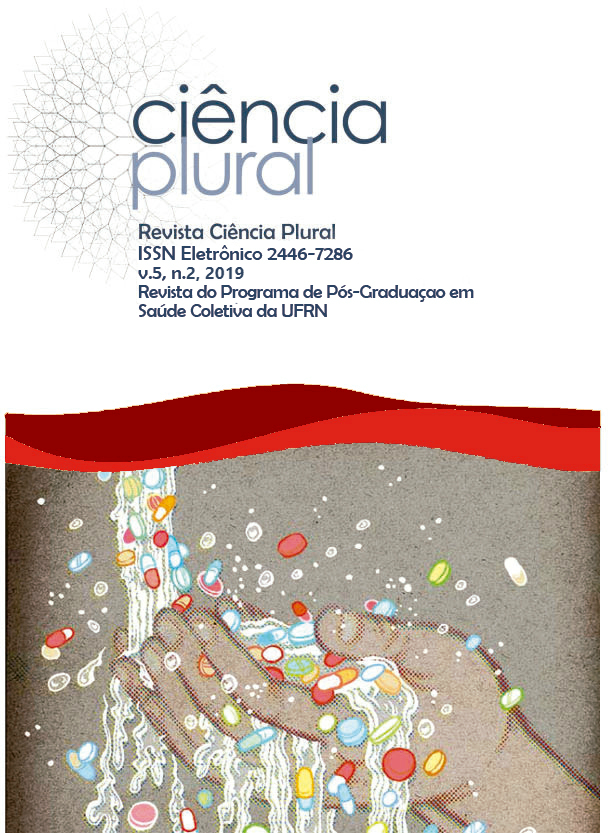A EDUCAÇÃO POPULAR EM SAÚDE COM GRUPOS DE IDOSOS DIABÉTICOS NA ESTRATÉGIA SAÚDE DA FAMÍLIA: UMA PESQUISA-AÇÃO
DOI:
https://doi.org/10.21680/2446-7286.2019v5n2ID16954Resumo
Introdução: a Educação Popular em Saúde (EPS) remete indivíduos e grupos à troca de saberes e experiências, permitindo-lhes associar a saúde ao resultado das suas condições de vida levando a uma emancipação do sujeito. Objetivos: conhecer e promover ações educativas com portadores de Diabetes Mellitus (DM); realizar oficinas de capacitação em EPS com trabalhadores de saúde; conhecer e desenvolver ações educativas participativas com grupos de diabéticos; e avaliar os resultados das ações realizadas para os trabalhadores e usuários, em uma Unidade de Saúde da Família em Natal/RN. Métodos: Trata-se de uma pesquisa-ação com o referencial teórico da Teoria da Educação Libertadora, centrada na pedagogia problematizadora. Participaram da pesquisa trinta trabalhadores de saúde e trinta e seis usuários diabéticos. As ações foram organizadas através de rodas de conversa, dinâmicas de grupo, narrativas de vida, relatos de experiências, e explicitação de saberes, desejos, limitações, crenças e valores socialmente construídos. A coleta dos dados foi realizada através da Técnica de Associação Livre de Palavras, entrevista semiestruturada e grupo focal. O material empírico foi submetido a análise de ocorrência (Bardin) com auxílio do programa IRAMUTEQ (Ratinaud; Marchand). Resultados e discussão: Foram geradas palavras, expressões e categorias, a partir dos temas abordados e de situações criativas mostrando que a EPS vem sendo incorporada timidamente no processo educativo dos sujeitos deste estudo e bem distante dos princípios de participação, organização de um trabalho político, ampliação dos espaços de diálogo, respeito, de solidariedade e tolerância entre os diversos atores envolvidos no enfrentamento dos problemas de saúde, fundamentais para o aperfeiçoamento na construção de práticas saudáveis da atenção básica. Considerações finais: A utilização de práticas ativas de ensino-aprendizagem, centradas na ampliação da escuta e em capacitações sobre EPS, poderá possibilitar mudanças no cenário onde os usuários e trabalhadores de saúde atuam com a diabetes mellitus.
Downloads
Downloads
Publicado
Como Citar
Edição
Seção
Licença
À Revista Ciência Plural ficam reservados os direitos autorais referente a todos os artigos publicados.






